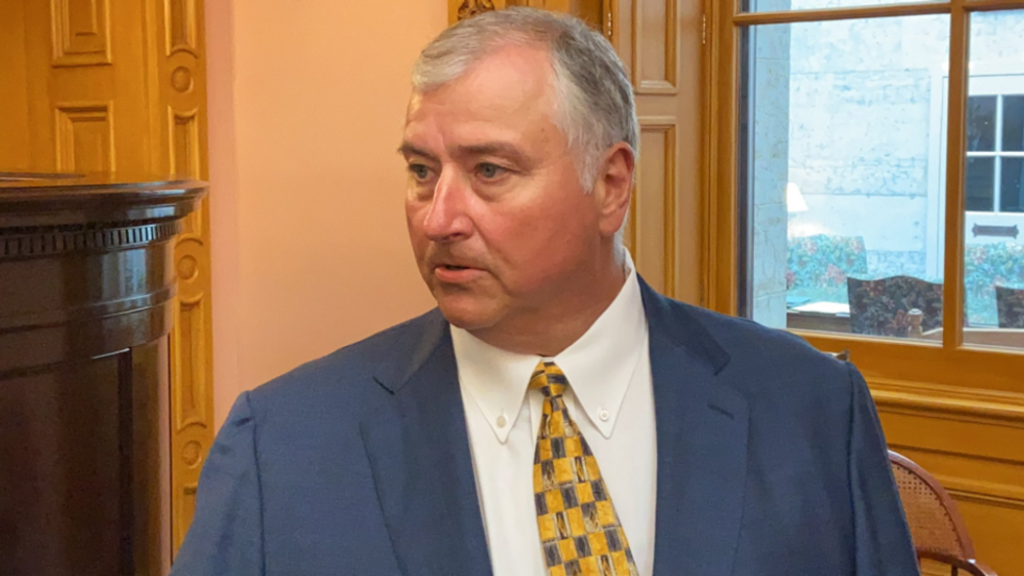FirstEnergy agrees to cooperate with feds in HB 6 scandal
3 min read
The company at the heart at what federal prosecutors call the largest bribery and corruption scandal in Ohio history agreed to pay $230 million and cooperate fully with the government as part of a deferred prosecution agreement, Vipal Patel, acting U.S. attorney for the southern district of Ohio, said Thursday.
FirstEnergy, based in Akron, admitted it conspired with public officials, others and entities to pay millions of dollars to public officials in exchange for specific official action to help FirstEnergy.
It also admitted it paid millions to an elected state public official through the official’s alleged nonprofit in return for the official pursuing nuclear legislation to FirstEnergy’s benefit.
Former Ohio Speaker of the House Larry Householder faces federal bribery and racketeering charges in the $60 million scandal that led to the passage of House Bill 6 and a billion-dollar bailout of the state’s nuclear plants.
Householder, who was expelled from the Ohio House last month, has pleaded not guilty and maintains his innocence.
FirstEnergy faces charges of conspiring to commit honest services wire fraud, but those charges could be dropped if it continues to cooperate with prosecutors. Patel said the company already has cooperated substantially.
Within 60 days, FirstEnergy also must pay $115 million to the federal government and $115 million to the Ohio Development Service Agency’s Percentage of Income Plus Plan, a program that provides assistance to Ohioans in paying their regulated utility bills, Patel said in a news release.
The company also admitted it paid $4.3 million to a second public official, and the official acted in his official capacity to help FirstEnergy’s interest related to passage of HB 6 and other company priorities, according to the news release.
The Public Utility Commission of Ohio ordered FirstEnergy earlier this month to return nearly $30 million to customers.
Householder, along with four co-conspirators, were charged a year ago. Three of the six entities have pleaded guilty.
Also charged were former Ohio Republican Party Chairman Matt Borges, lobbyist Neil Clark, the Oxley Group co-founder Juan Cespedes and strategist John Longstreth.
The U.S. attorney’s office said the conspiracy involves more than $60 million paid to a 501(c)(4) entity to pass and uphold a billion-dollar nuclear plant bailout.
The charging documents said the group conspired to launder millions of dollars in bribes through the entity Generation Now. Court documents show the enterprise received millions of dollars in exchange for Householder and the group’s help in passing House Bill 6, which saved two Ohio nuclear power plants from closing.
Longstreth admitted in his plea to organizing Generation Now for Householder, knowing it would be used to receive bribe money to further Householder’s bid for speaker of the House. Longstreth managed Generation Now bank accounts, and he said he concealed the energy company was the source of the funding.
Cespedes admitted he orchestrated payments to Generation Now, and he knew the payments were meant to help Householder politically in return for help in passing HB 6.
HB 6 created a new Ohio Clean Air Program to support nuclear energy plants and some solar power facilities. Electricity consumers were to fund the program with the surcharge that ran through 2027.
The fee, which was scheduled to begin Jan. 1, was stopped by the Ohio Supreme Court in late December. Ohio Attorney General Dave Yost also reached a deal with FirstEnergy to stop what would have been a $120 million windfall for the company this year based on another part of HB 6.
This article was originally posted on FirstEnergy agrees to cooperate with feds in HB 6 scandal





